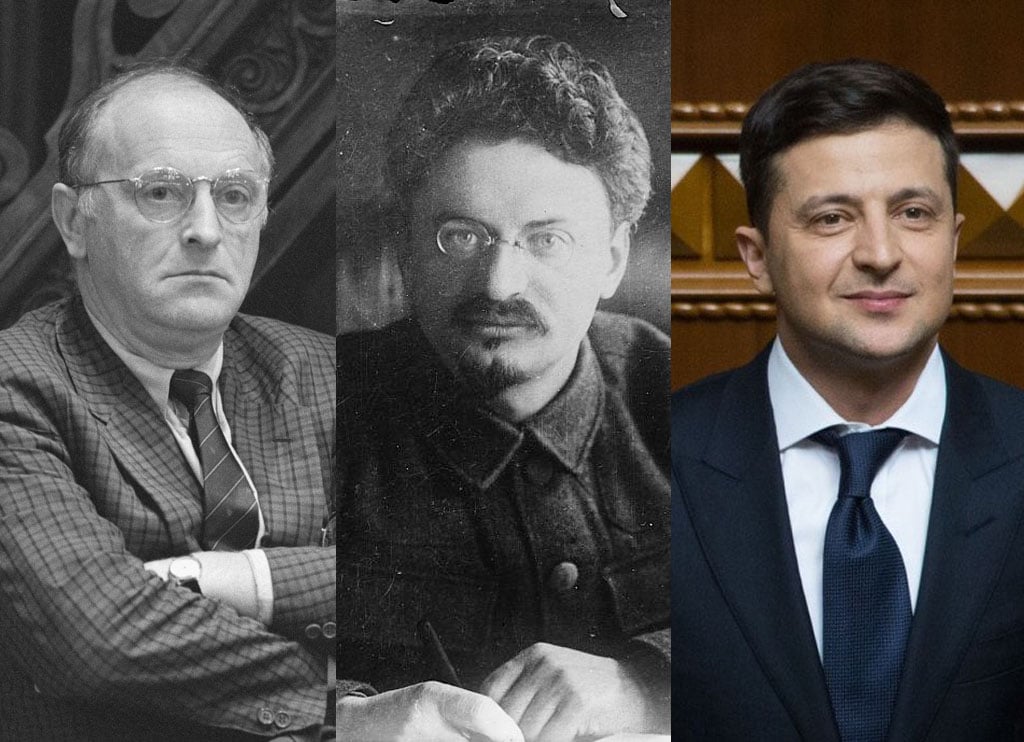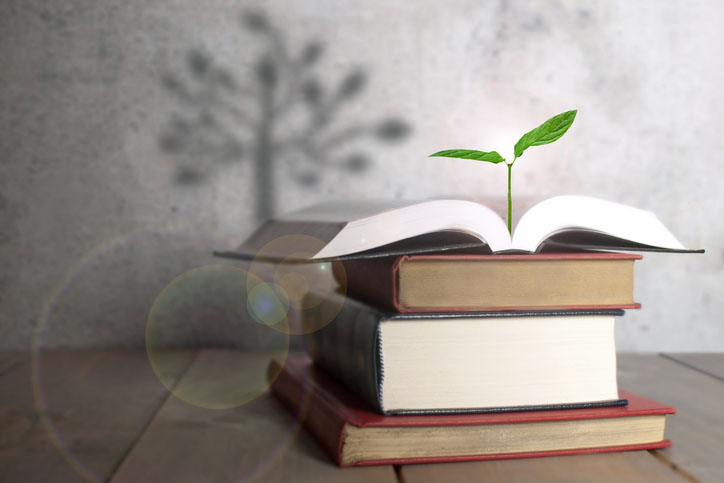
Nobel laureated Joseph Brodsky wrote “Farewell,”
Ukrainians quitting, calling them kholkols, a racial slur.
It thus implied the Russian poet thought of them less well
than does another Jew, Zelensky, who seems to prefer
Ukrainian identity not just as Russian, unlike Brodsky,
but as Jewish.
In Hebrew there are two connotations
to kalkel, qalqel, “provide” and “ruin!” These men like Trotsky
ignored their Jewish roots, preferring shoots of alien nations,
providers, using Joseph’s maverick paradigm:
to be appreciated for the favors they bestowed
on aliens, with Jewish identity the enzyme,
enabling programs of non-Jewish nations to download.
***
In “Russia’s Long Disdain for Ukrainian Nationhood: Even Russian liberals and dissidents have traditionally shared Putin’s view that Ukraine has no distinct cultural identity,” WSJ, 4/28/22, Yaroslav Trofimov writes:
As a young poet in the Soviet Union, Joseph Brodsky was persecuted by the authorities before escaping to the U.S. in 1972 and going on to win the Nobel Prize in literature. In Soviet-era Kyiv, Ukrainian intellectuals used to trade coveted samizdat reprints of Brodsky’s poems, reciting them at clandestine gatherings.
But the affection wasn’t mutual. At a reading in 1992, less than a year into Ukraine’s existence as an independent nation, Brodsky offered a new poem titled “To the Independence of Ukraine.” “Farewell khokhols,” he intoned, using a racial slur for Ukrainians. “We’ve lived together, now enough. Wish I could spit into the Dnipro river, perhaps it would now flow backwards.” Brodsky went on to predict that when the ungrateful Ukrainians were wheezing on their deathbeds, they would surely revert to reciting the verse of the classic Russian poet Aleksandr Pushkin, rather than the “lies” of their own national poet, Taras Shevchenko.
The idea that Ukrainians aren’t a real people and that Ukrainian nationhood is an artificial construct has long been mainstream in Russian culture, literature and politics—including among liberal luminaries like Brodsky, who died in 1996. President Vladimir Putin’s views on Ukraine, which he expounded in an essay last year that was read to Russian soldiers preparing for the invasion, are no outlier. They follow a lengthy tradition that helps to explain the continuing support for the war among Russia’s citizens.
Christopher MacLachlan points out in The Spectator, 4/9/22 that the Russians call the Ukrainian invaders “orcs.” (“Why are Ukrainians calling Russian invaders ‘orcs’?”):
Ukrainian victims of Russia’s war have taken to calling their invaders ‘orcs’. The word is familiar to JRR Tolkien readers as the name given to the monstrous anthropoids in his epic novel ‘The Lord of the Rings’. In all Tolkien’s stories of the wars in Middle Earth, orcs are violent, destructive and untrustworthy, wreaking wanton havoc wherever they go. It is not hard to see why the people of Ukraine use this name for the invaders of their land.
But although Tolkien made the word his own, its origins are, as he acknowledged himself, much older. Orcs first appeared in a tenth-century glossary written in Old English (Anglo-Saxon) and, more famously, in line 112 of the Old English poem Beowulf: ‘Eotenas ond ylfe ond orcneas’.
In both cases, the word appears as an item in a list of the names of creatures. In Beowulf, it can be translated as ‘ogres and elves and monsters’. But apart from that context there is little to explain what orcs were (or are). One possible clue linguists have picked up on is that ‘orcneas’ combines the word ‘orc’ with another word ‘neas’ that seems to mean ‘corpses’. The Hebrew word כלכל means “provide” and the Hebrew word קלקל means “ruin.” I am sure Brodsky was unaware of either meaning whether he described the Ukrainian’s as “khokols.”
Gershon Hepner is a poet who has written over 25,000 poems on subjects ranging from music to literature, politics to Torah. He grew up in England and moved to Los Angeles in 1976. Using his varied interests and experiences, he has authored dozens of papers in medical and academic journals, and authored “Legal Friction: Law, Narrative, and Identity Politics in Biblical Israel.” He can be reached at gershonhepner@gmail.com.


































 More news and opinions than at a Shabbat dinner, right in your inbox.
More news and opinions than at a Shabbat dinner, right in your inbox.